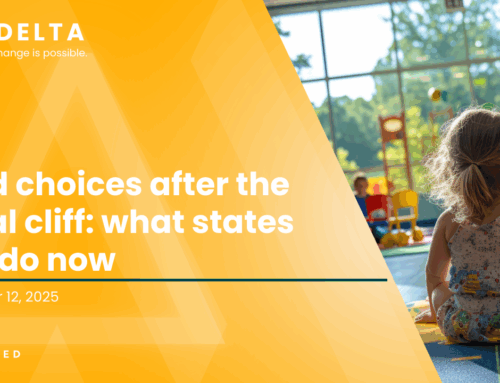The Delta Issue #62
Short-Term Politics Are Bad for Kids
What’s Happening in Virginia
It’s heartening to see a state make a hard decision for the right reasons. On September 25th, the Virginia Board of Education unanimously voted to raise the state’s cut scores in reading and math, the minimum scores students need to be considered proficient.
For years, Virginia’s proficiency standards understated how many students were struggling. The new, higher cut scores will align the state’s assessment more closely with national benchmarks like NAEP, giving parents, educators, and leaders a clearer view of how students are really doing.
At a time when many states are lowering expectations to score an easy headline, Virginia chose honesty over optics. That’s a hard choice, and one that deserves recognition because it’s the right thing to do for students.
Why Holding a High Bar Matters
If we want better outcomes for students, we can’t pretend they’re doing better than they are.
A score of “proficient” should not be a low bar — it should mean students are ready for the world. Yet the NAEP State Mapping Tool shows that a student deemed “proficient” in one state might be considered below standard in another.
When students graduate, employers and colleges expect them to have a foundation in reading, writing, and math. A common high bar ensures that “ready” means the same thing everywhere, and that proficiency reflects genuine preparedness.
NAEP isn’t perfect, but it offers states a common reference point for proficiency and a way to compare their results against a shared definition of success. States should follow Virginia’s lead and align their benchmarks to (at least) NAEP’s level of rigor so expectations are clear, transparent, and comparable across borders.
Campaign Politics and Education Don’t Mix
It’s easy to talk about high standards. It’s much harder to keep them when your job security depends on headlines like, “[State’s] high schoolers make meteoric gains on statewide assessment.”
Lowering standards has become the shortcut to artificial good headlines about high scores. That’s why we’re proponents of having appointed — not elected — superintendents of education. When leaders are elected to run state education agencies, they are often perversely incentivized to chase decisions that look good, even when they’re not good for kids.
We’ve seen this play out across several states:
- Oklahoma’s infamous (and recently resigned) Superintendent Ryan Walters lowered proficiency standards to create an illusion of progress. New test results came out last week, showing that students performed worse in reading and math than the year before.
- Wisconsin (also an elected chief) revised test benchmarks last year, and critics say the move watered down standards to make scores look better. Lawmakers tried to reverse it with a 2025 bill, but the governor vetoed it—a perfect example of politics getting in the way of honest accountability.
We wrote a few months ago about how appointed superintendents aren’t free from politics, but they’re one step removed from the noise of campaigns, fundraising, and headline-chasing. The more space we create between politics and decisions about kids, the better those decisions tend to be.
Which brings me back to Virginia: Not only does Virginia have an appointed superintendent, it’s also the only state where a governor can’t serve consecutive terms. That structure can make it easier to take tougher, longer-term steps—like raising academic standards—without as much pressure from the next election cycle. But it also means implementation takes real persistence across administrations, which is often where progress stalls.
Four years isn’t much time to see reforms through, and the next administration can easily undo what the last one started. With Virginia’s gubernatorial election coming up in November 2025, it’s critical we are calling on whoever wins to commit to holding the line on these higher standards and following through on implementation. The one-term rule makes bold action possible, and it also makes sustained leadership all the more essential.
Let’s Get Muddy
For those in Virginia, the Board of Education will hold its next public comment session on October 23 at 9:00 a.m. Showing support matters — hearing from you will strengthen the resolve of leaders in the state to hold the line on high standards for kids, reminding them they aren’t alone. Sign up to testify by October 22 at 5:00 p.m..
If you can’t be there in person, you can also submit written comments ahead of the meeting.





